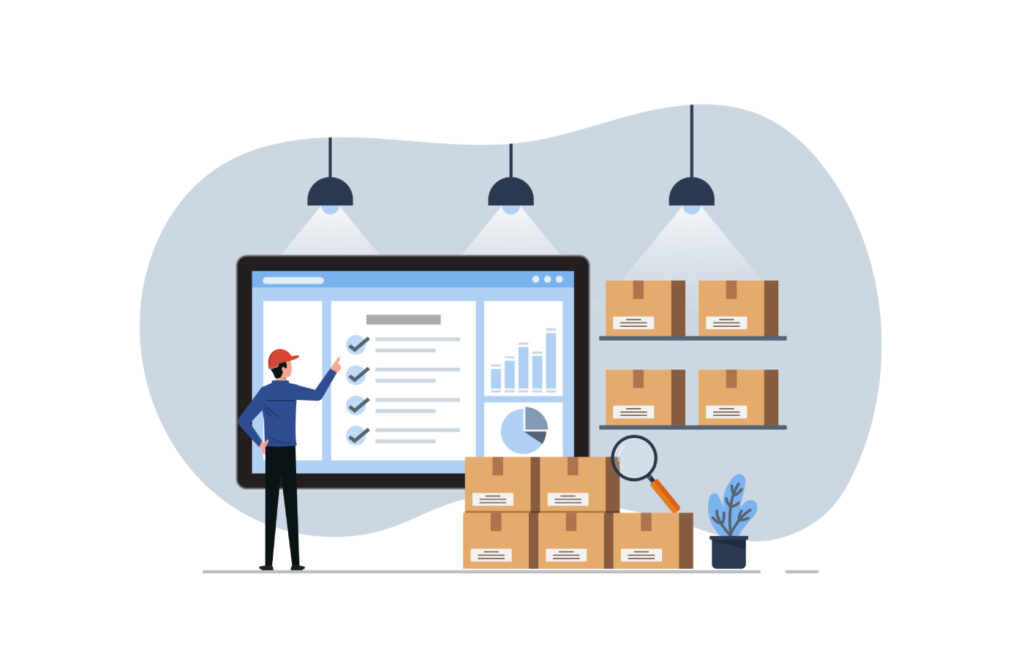Key takeaways
Square and Toast are two of the most popular restaurant point-of-sale (POS) systems in the market. They are considered among the best restaurant POS systems because of their ease of use, comprehensive restaurant-specific features, and excellent hardware options.
When comparing Square vs Toast, it’s important to compare their pricing and features and look at their key differences to know which would be best for your restaurant business.
Toast vs Square: Key differences


Contract length
Month-to-month
2 years
Plan structure
Simple plan structure
More complex plan structure (Pay-as-you-Go and Standard)
POS software starting cost
$0+
$0+
Features
Basic included, need to upgrade to a paid plan for many necessary tools
Robust base plan
Industries
Any small business
Specifically for restaurants
Customer support
- Mon to Fri phone support
- 24/7 automated chat support
- 24/7 phone, email, and in-app support

Toast: Best for mid- to large-sized restaurants
Pros
- Robust restaurant-specific features
- Industry-grade hardware
- Extensive integrations
- 24/7 customer support
Cons
- 2-year contract for all plans
- Add-on fees for most features
- Higher processing fees
Why I chose Toast
Toast is the top choice for mid- to large-sized food businesses due to its powerful, restaurant-specific features and durable hardware. Tailored exclusively for the food service industry, Toast excels in supporting various dining establishments—from bustling cafes to multi-location fine dining restaurants—with advanced tools for order management, payroll, and scheduling.
The robust hardware, including the versatile Toast Flex and portable Toast Go, is designed to withstand the demands of high-volume environments, offering features like spill-resistant designs and self-service options such as the Toast Kiosk to enhance operational efficiency.
It offers flexible pricing plans, including $0 upfront hardware options in exchange for higher processing fees. Overall, Toast’s all-in-one approach, combined with its continuous enhancements, makes it the ideal choice for mid- to large-sized food businesses aiming to streamline and scale their operations.

Square: Best for small food businesses
Pros
- Always free POS software with good features
- Free online ordering
- Quick and easy sign-up and set-up
- No contracts, cancel anytime
Cons
- Users reported occasional outages
- Fewer integration options
- Limited customer support hours
Why I chose Square for Restaurants
Square is the best choice for small food businesses due to its affordability, ease of use, and versatility. It offers a range of hardware options, from the compact Square Terminal to the iPad-compatible Square Stand, making it easy for cafes, food trucks, and small restaurants to find the right setup for their needs.
Each Square account includes a free POS plan and a mobile card reader, allowing small businesses to start processing payments with minimal upfront investment. Its all-in-one system covers everything from order management to inventory tracking, ensuring that even the smallest businesses can operate efficiently.
Square’s transparent pricing, no-contract approach, and free plan options add to its appeal for small food businesses looking to manage costs while still benefiting from a robust and reliable POS system. While Toast may offer more specialized features, Square’s flexibility, comprehensive functionality, and ease of use make it the ideal choice for small food businesses looking to get up and running immediately.
Square vs Toast: A detailed comparison


Contract length
Month-to-month
2 years
Monthly fee
Starts at $0
Starts at $0
Payment processing fees
- In-person: 2.6% + 10 cents
- Online: 2.9% + 30 cents
- Keyed-in/Invoices: 3.5% + 10 cents
- Pay-as-you-Go: 3.09% + 15 cents
- Pay-as-you-Go Core: 3.39% + 15 cents
- Pay-as-you-Go Growth: 3.69% + 15 cents
- Standard: 2.49% + 15 cents
Hardware options
- Free magstripe reader
- Tap to Pay on iPhone and Android
- Standalone terminal starts at $299 (Square Terminal)
- Free hardware kit with Pay-as-you-Go plans
- No Tap to Pay on mobile device option
- Handheld kit with Standard plan: $799.20
Customer support
- 24/7 support for paid subscribers
- Monday – Friday phone support from 6am – 6pm PT for free subscribers.
- 24/7 phone, email, and in-app support
Looking for other options? Both Square and Toast are included in our list of the best restaurant POS systems.
Pricing: Square is the most affordable option
When it comes to pricing and affordability, Square wins over Toast. Square is known for its zero-initial-cost affordability, making it an attractive option for small food businesses or those on a tight budget. It offers a free POS plan with basic functionalities, a free magstripe reader, the ability to accept contactless payments with just a compatible iPhone or Android mobile device, and a low flat-rate card-present processing fee of 2.6% + 10 cents per transaction.
While Square’s costs are generally lower than Toast’s, the basic functionality is still enough for quick service operations. Additional features like payroll, marketing, and advanced reporting can be added for a fee, but even with these add-ons, Square tends to be more cost-effective for smaller businesses. Unlike Toast, Square’s pricing is straightforward, with no long-term contracts, making it easier for small businesses to start with minimal financial commitment.
On the other hand, Toast’s pricing model is structured to cater specifically to established food businesses, especially with its standard 2-year contract. Although it offers a Pay-as-You-Go option with no monthly fees and a free hardware kit, it comes with processing fees much higher than Square’s standard processing fees. Also, while Toast’s basic plan includes essential POS features, many of Toast’s most sought-after features, like online ordering, gift cards, and loyalty programs, require additional fees.
If your main priority for a restaurant POS system is affordability, you’d get the lowest cost with Square’s basic setup. It gives you essential, basic functionalities for quick-service restaurants while only paying for processing fees per transaction. However, for mid- to large-sized food businesses, Toast’s higher upfront and ongoing costs may be justified by its extensive restaurant-specific features, making it a better fit for full-service that are willing to invest in a more specialized system.
Hardware: Toast is built for a kitchen environment
Both Square and Toast offer a range of devices designed to cater to the needs of restaurants, but they differ significantly in terms of customization, durability, and overall cost.
Toast’s hardware is specifically built for the restaurant environment, offering durability and functionality that aligns with the demands of busy kitchens, dining areas, and mobile food services.
Key Toast hardware devices include:
Toast Flex
Toast Go
Toast Kiosk



Outright purchase: $1,024.20
Outright purchase: $799.20
Outright purchase: $1,339.20
On the other hand, Square offers a variety of hardware options that are more generalized but still very effective for small food businesses.
Key Square hardware devices include:
Square Magstripe Reader
Square Contactless and Chip Reader
Square Stand
Square Terminal
Square Register





1st one: Free
Additional reader: $10
1st generation: $49
2nd generation: $59
$149 or $14 per month for 12 months
$299 or $37 per month for 12 months
$799 or $39 per month for 24 months
Square’s hardware is more affordable and versatile, designed to be easy to set up and use across various business types. It’s also more flexible, as it can be used with existing devices like iPads, reducing the need for significant upfront investment. However, Square’s hardware does not offer the same level of durability as Toast’s.
For small food businesses, Square’s hardware offers affordability, flexibility, and ease of use. It’s ideal for businesses that need a reliable system without making a large investment.
However, for mid- to large-sized restaurants, or simply those that want hardware that can endure drops, spills, and heat, Toast’s restaurant-specific hardware is better suited, offering the durability and advanced features necessary for high-volume, fast-paced environments.
Features: Toast is more robust


Table management
✔*
✔
Menu management
✔
✔
Order and course management
✔*
✔
Kitchen display system
Add-on fee
Add-on fee
Online ordering
Per-order add-on fee
Add-on fee
Delivery management
Via integrations
Add-on fee
Loyalty programs
Add-on fee
Add-on fee
Gift cards
Add-on fee
Add-on fee
Employee management
Add-on fee
Free for basic tools;
Add-on fee for advanced tools
Inventory management
Ingredient-level tracking requires a third-party integration
Available through xTraCHEF for an add-on fee
Reporting and analytics
✔*
✔
Restaurant CRM
✔
✔
Restaurant Marketing
Add-on fee
Add-on fee
Mobile POS
✔
On Toast devices only
Guest feedback
✔
✔
Third-party integrations
30+ integrations
120+ integrations
*Not included in the free plan; access to this feature requires a paid subscription.
When it comes to restaurant-specific features, Toast, which is purpose-built for the restaurant industry, offers a deeply integrated suite of tools tailored to the unique needs of food service establishments. While Square provides many of the same features, its offerings are more basic in comparison. Toast’s features are more robust and designed to meet the heavier demands of larger and more complex food businesses, making it a better fit for restaurants requiring advanced capabilities.
Square, while not exclusively focused on restaurants, offers a versatile platform with many essential, very basic features included at no extra charge, making it an attractive option for small food businesses. Square provides over 30 restaurant-specific integrations to expand their capabilities.
However, Toast leads in third-party integrations with over 120 options, giving it an edge for larger or full-service establishments seeking a more tailored solution. Overall, Toast’s extensive feature set and deep industry integration make it better suited for larger restaurants looking for a more comprehensive, all-in-one system.
Toast vs Square: Which is best?
Choosing between Toast and Square ultimately depends on the specific needs of your food business. Toast is the clear winner for mid-to large-sized restaurants that require a comprehensive, restaurant-specific POS system. Its robust features, designed specifically for the food service industry, provide the depth and functionality needed to manage complex operations, from advanced inventory and employee management to integrated CRM and detailed reporting. Toast’s specialized restaurant-grade hardware and extensive integrations also make it an excellent choice for businesses with higher demands and the need for tailored solutions.
On the other hand, Square is best suited for small food businesses that prioritize affordability, ease of use, and flexibility. With its no-cost basic features, simple setup, and versatile hardware, Square offers a more accessible entry point for smaller operations or new businesses. While it may lack the advanced capabilities of Toast, Square provides enough functionality to efficiently run day-to-day operations, making it an ideal choice for cafes, food trucks, or small restaurants looking for a reliable and budget-friendly POS system.
If you’re running a small food business with straightforward needs, Square offers an excellent balance of functionality and cost-effectiveness. For larger, more complex restaurants, Toast provides the specialized tools and scalability required to support your growth and enhance your operations.













